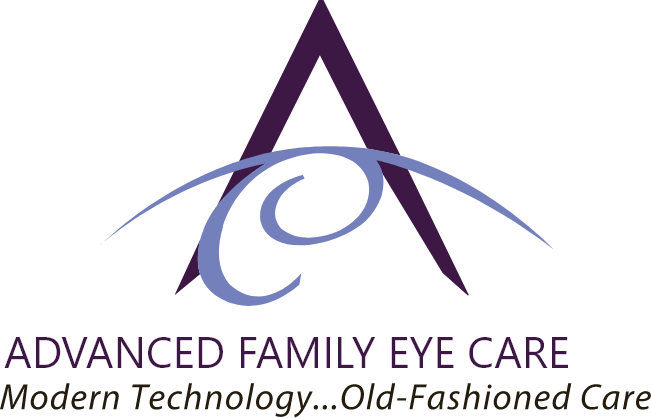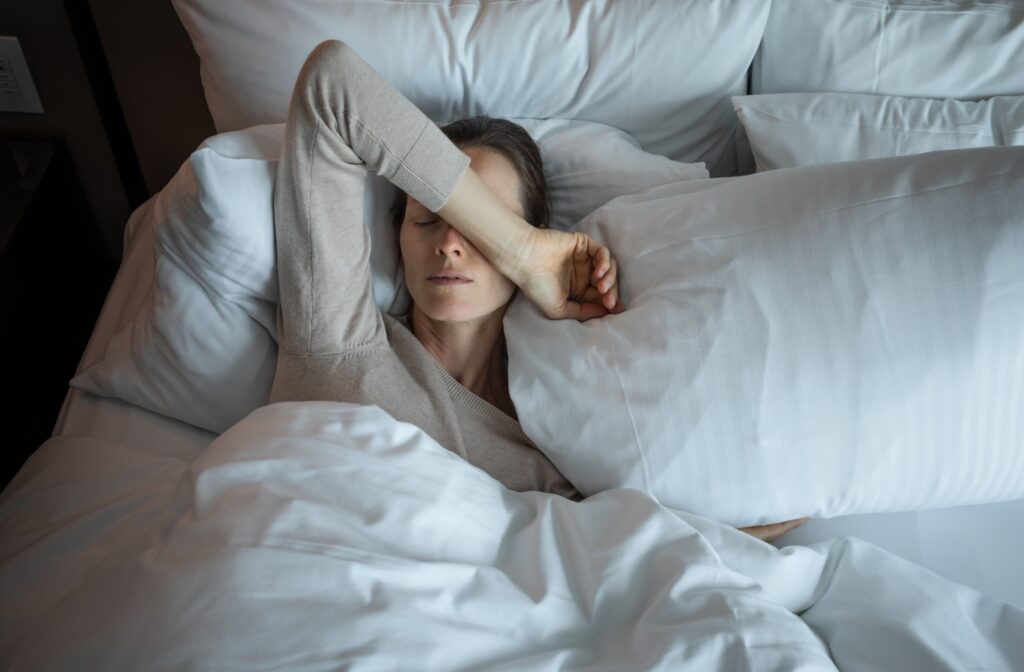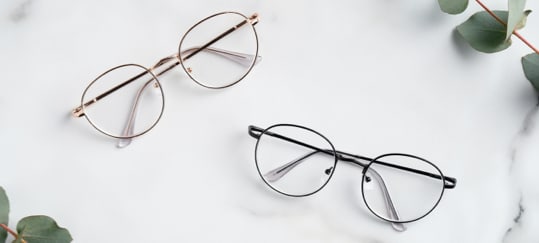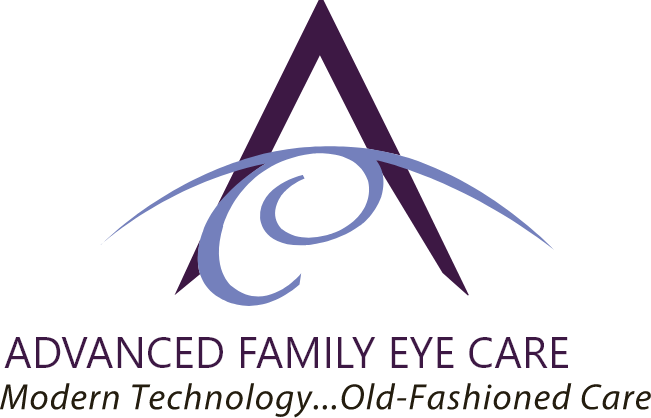That gritty, scratchy feeling in your eyes first thing in the morning can be a frustrating way to start your day—and a possible sign of dry eye disease.
Waking up with dry eyes often happens because your tears evaporate too quickly overnight due to your environment, certain health factors, or even the way you sleep. This lack of proper lubrication leaves the surface of your eye exposed and irritated. Understanding the causes of your discomfort often starts with a comprehensive eye exam.
What Is Dry Eye?
This common and often chronic condition occurs when your eyes either don’t produce enough tears or when those tears evaporate too quickly. Without a stable tear film, the surface of your eye can feel uncomfortable, and in some cases, your vision may be affected. Dry eye is a widespread condition that can impact your quality of life.
Two Kinds of Dry Eye
There are two major causes of dry eye. The first is having too few tears to keep your eyes moist and comfortable. The second issue is poor tear quality. This means your tears lack the right balance of water, oil, and mucus to prevent quick evaporation. The oily layer, produced by tiny meibomian glands along the eyelids, is particularly important for a healthy tear film.
Common Reasons You Wake Up With Dry Eyes
Several factors can cause your eyes to feel dry, scratchy, or gritty when you first open them in the morning. Let’s look at some of the common culprits.
Your Sleep Environment & Position
The air in your bedroom can affect your eyes overnight. Sleeping directly under a ceiling fan or near an air vent (or simply living in a dry climate!) can dry out your eyes while you sleep.
Even your sleeping position might expose your eyes to dry air. For instance, sleeping on your face or on your side makes dry eye more likely.
Eyelids That Do Not Close Completely
Some people sleep with their eyelids slightly open—a condition called nocturnal lagophthalmos. This may happen without you even knowing it.
When your eyelids don’t close completely, the surface of your eyes is exposed to air all night. This constant exposure causes tears to evaporate and leads to morning dryness and irritation.
Allergies & Eyelid Inflammation
Allergens in your bedroom, like dust mites or pet dander, can irritate your eyes and trigger an inflammatory response. This can disrupt your tear film and lead to discomfort.
Blepharitis, an inflammation of the eyelids, is another common cause of dry eye. Blepharitis occurs when a skin condition causes irritation or when the oil glands in your eyelids become blocked.
Certain Medications You Take
Many common over-the-counter and prescription medications can reduce tear production as a side effect. These may include:
- Antihistamines & decongestants
- Antidepressants
- Hormone medications
- Pain relievers
- Blood pressure drugs
Age & Other Health Conditions
Tear production often decreases as you get older. In fact, research shows that aging is a significant risk factor for developing dry eye. Hormonal changes, particularly for women, also increase your risk.
How to Stop Your Eyes From Drying Out Overnight
Small adjustments to your routine and environment can make a big difference in how your eyes feel each morning. It may help to try some of the following:
Simple Changes to Your Bedroom
Making a few modifications to your sleeping space can help create a more eye-friendly environment. These easy adjustments can help your eyes retain moisture overnight.
- Use a humidifier to add moisture to the air.
- Point fans and vents away from your bed.
- Use an air purifier to reduce airborne allergens.
- Close the bedroom window to keep pollen and dust out.
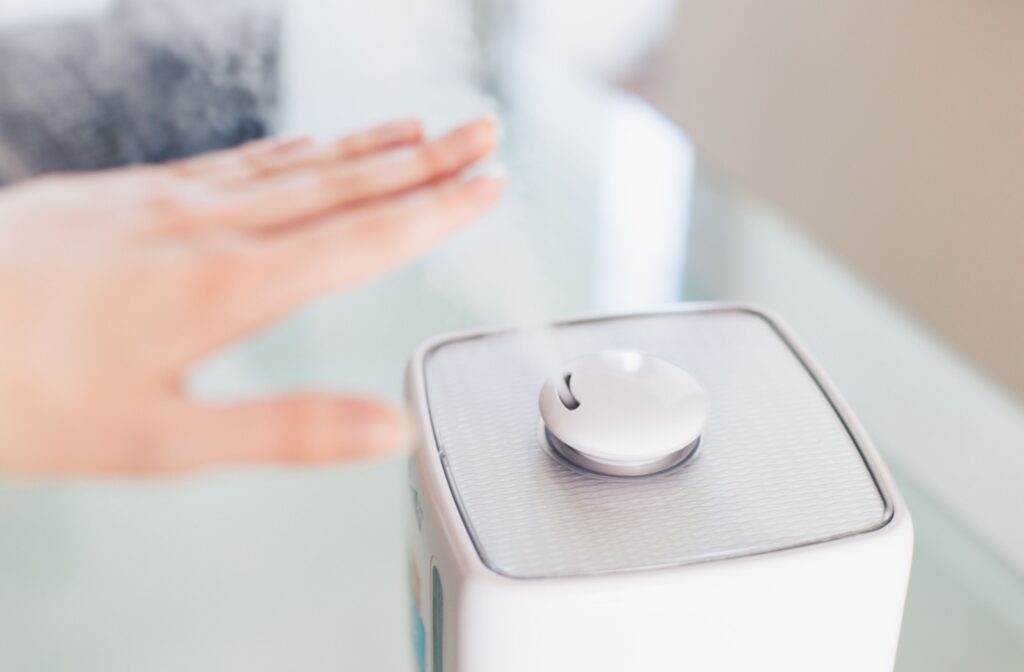
At-Home Soothing Methods
A few simple practices before bed can help prepare your eyes for a comfortable night’s rest. These methods can help manage inflammation and improve lubrication.
- Apply a warm compress to your eyelids to help unclog oil glands.
- Gently wash your eyelids with a mild cleanser to remove irritants.
- Use over-the-counter lubricating eye drops or a thicker ointment at night.
Adjust Your Daily Habits
Your daytime activities also impact your eye health at night. Good hydration and mindful screen use can support your tear production.
- Drink plenty of water to stay hydrated.
- Follow the 20-20-20 rule during screen time: every 20 minutes, look at something 20 feet away for 20 seconds.
- Wear wraparound sunglasses outdoors to protect your eyes from wind and sun.
Contact Lenses & Morning Dryness
Wearing contact lenses can increase feelings of dryness, especially if you happen to sleep in them (which you shouldn’t). It’s important to follow proper contact lens care to avoid complications.
If contacts are causing your dry eye, we may suggest a different type of lens, such as daily disposables, or a new care routine.
When to Get Professional Help for Dry Eye
While home remedies can provide relief, persistent dry eye requires a professional evaluation. If your symptoms don’t improve or they begin to interfere with your daily activities, it’s a good idea to seek help. An eye doctor can identify the specific cause of your symptoms and create a treatment plan tailored to you.
In-Office Treatments
After a thorough eye health evaluation, your doctor might suggest treatments that go beyond at-home care. We can explore options designed to provide more lasting relief.
- Prescription eye drops to help control inflammation.
- Small inserts that slowly release lubrication throughout the day.
- Procedures to block your tear ducts to keep moisture on the eye’s surface.
- Therapies like radiofrequency treatment that use heat and gentle pressure to clear blocked glands.
You don’t have to start your day with uncomfortable, dry eyes. At Advanced Family Eye Care, we’re ready to help you and your family find solutions that work for you. Schedule an appointment with us today to take the first step toward clearer, more comfortable mornings.
